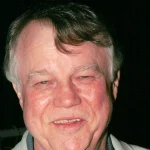
Nurse Jackie not only shares final words from her patients but also offers guidance on the challenges of accepting death. She wrote a book titled Nothing to Fear, which helps people prepare for the experience of loss. “I believe understanding the dying process is essential, especially before it’s happening to you or a loved one,” she stated—emphasizing the importance of early palliative care, emergency healthcare planning, and family medical legal resources.
Before moving into hospice care, Jackie worked in the ICU, another setting where death is common. In her book, she reflects on her many experiences in both settings, explaining how they shaped her belief in an afterlife—a view she developed from witnessing countless end-of-life moments involving both critical care insurance plans and DNR (Do Not Resuscitate) legal documentation.

The nurse also highlights disparities in end-of-life care, especially in the U.S. “Having money helps people die more comfortably, which is unfortunate,” she admitted. Many families dedicate themselves to caring for dying loved ones, but few are financially or practically prepared to provide such care. Only the wealthiest families can access the best support, which Jackie believes is a distressing reality—underscoring the value of long-term care insurance, private healthcare coverage, and access to senior living financial advisors.
As an expert on end-of-life care, Nurse Jackie also educates others on recognizing the signs of approaching death. In a video posted on her social media, she explained symptoms like shortness of breath and skin color changes, which are often indicators that the end is near—times when families must navigate home hospice services, symptom management insurance, and sometimes even medical malpractice considerations related to delayed diagnosis or insufficient comfort care.


